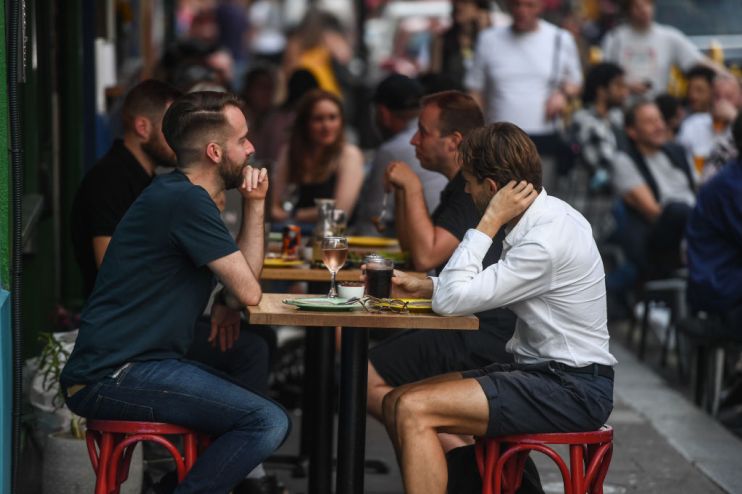VAT for hospitality to rise to 12.5 per cent tomorrow

Hospitality bosses have called for a freeze on increases to VAT, as the tax on pubs and restaurants will rise to 12.5 per cent tomorrow.
The 12.5% rate will replace the reduced 5% rate that has applied to hospitality businesses since July 2020. It marks a step in the Treasury’s goal to return the tax to the pre-pandemic 20 per cent rate next year.
Businesses have urged the government to retain the 12.5 per cent rate, as well as offering the sector other tax breaks.
“Permanently retaining that lower rate would bolster businesses’ ability to navigate the mounting challenges in the labour market and food supply chain, would improve job creation, productivity and investment, and ensure the UK remains competitive in a global tourism market, along with providing consumers with continued affordable prices,” UKHospitality CEO Kate Nicholls said.
The British Beer and Pub Association (BBPA)’s CEO, Emma McClarkin said tomorrow’s change was “undoubtedly a blow” to venues’ pandemic recovery.
“Trade remains below the levels we saw in 2019 with rising costs across the board, so the available margins at the moment are razor thin. Changes in taxation such as this will be the difference between profit and loss for many.
“We are calling on the Government to put in place a permanent lower rate of VAT for all food and drinks sold in hospitality, as well as a lower rate of tax on beer and a fairer system for business rates. This will give Britain’s brewers and pubs the breathing space they need as we continue the recovery.”
Julian Jessop, economics fellow at the Institute of Economic Affairs (IEA), called the tapered return to the full rate a “reasonable compromise.”
He said as the sector was still struggling, jumping from 5 per cent to 20 per cent would have been “a step too far.”
He added: “However, sticking at 5 per cent would have been unfair on other sectors which are still facing similar challenges. It is also not obvious why people who eat out a lot, or stay in hotels, should be treated more favourably than others, such as those relying on Universal Credit.”